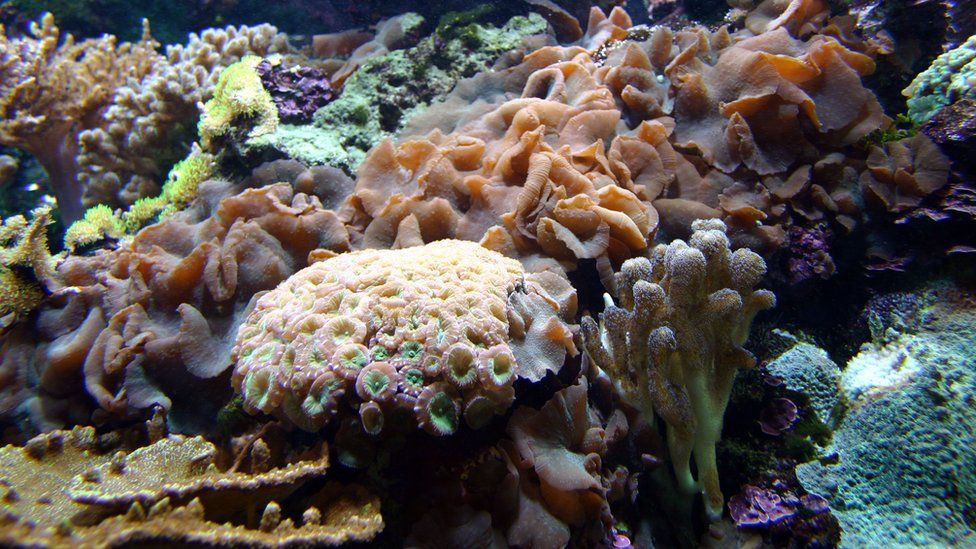Job losses as Fiji bans live coral exports
- Published

Fiji's government has banned the export of live coral in an attempt to protect the Pacific nation's reefs, but the move has stirred concerns and job losses among local companies.
The ban came into force last week, with Fisheries Minister Semi Koroilavesau saying it was part of the government's commitment to protect the seas, the Fiji Times reports.
"Our commitment also means protecting the coral system and maintaining a healthy ocean and that's why we are doing it now," he said.
Most exported coral is used in aquariums, said the minister.
Companies caught breaching the ban face fines of up to 20,000 Fiji dollars (US$9,830; £7,260).
'Zero consultation' claim
However, the block on exports has hit the local economy, with one company laying off 60 of its staff, the Fiji Sun reports.
The Walt Smith International (WSI) company complained that there had been "zero consultation" with the government, with manager David Barrick telling the paper that "it came to us as a complete surprise and we haven't slept since Friday".
"Our business is a lot more than coral and rock export, but the coral and rock export is what supports our coral farming and our man made rock - without that we can't stand alone," Mr Barrick said.
However, Mr Koroilavesau denied the industry was "left in the dark" ahead of the ban, and promised further consultation on what exactly companies can export.
"The exporters know very well that there has been a slow, slow reduction in the quotas for coral exports," he told Australian broadcaster ABC, something the industry denies.
Cultured coral
One option for Fiji's coral exporters is increasing the amount of artificially cultured coral grown in Fijian waters while natural reefs are given time to recover, Radio New Zealand reports.
However, such an approach is expensive and fraught with practical difficulties.
"The cost and investment behind breeding coral is not really manageable by anybody but universities trying to do research on it," WSI's David Barrick said.
With Fiji's coral being a big draw for tourists, Fisheries Minister Semi Koroilavesau told Radio NZ that "if we don't conserve it, then our future generations will not be able to enjoy the same benefits that we have now".
Reporting by Alistair Coleman
Use #NewsfromElsewhere to stay up-to-date with our reports via Twitter.